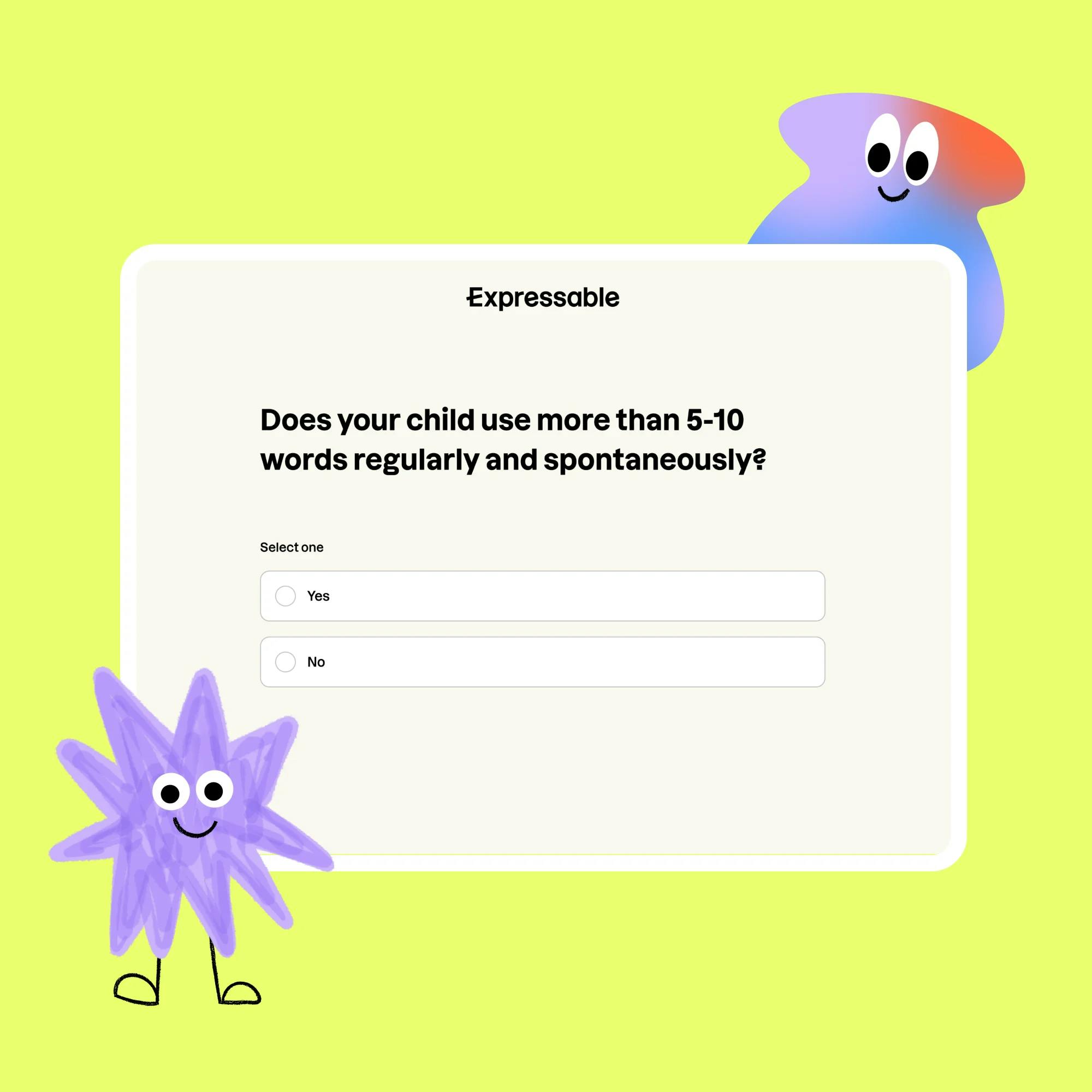As kids get older, they begin forming relationships with other children through play dates, school, and extracurricular activities. According to recent research, children with a speech disorder may have a harder time making friends and navigating social experiences. Fortunately, speech therapy can be a big help. Here’s what parents and caregivers need to know.
Research on the effects of speech delay
A recent study looked at 7,390 8-year-old children during the 1990s. These children had persistent speech disorder (PSD), which meant they still had trouble pronouncing certain speech sounds past the age that children should have speech sound errors. The kids themselves, as well as their parents and teachers, answered questions to assess any possible symptoms of depression or behavior problems. To follow up, the kids and families were given questionnaires and interviews again at ages 10, 11, and 12.
The study found that 8-year-old children with a speech delay were more likely to have difficulty forming friendships when they were 10 and 11 years old. However, this wasn’t correlated with a higher likelihood of depression. They also didn’t appear to have a higher risk of antisocial or risk-taking behavior at ages 11 through 14.
How speech and language problems affect academic performance
Other research has looked at the effects of speech and language delays on school performance. The emotional effects of speech and language problems can become more pronounced once children enter school. Suddenly, they’re surrounded by children their own age. They’re interacting with kids who may be more advanced in their communication abilities. Children often notice these differences and become self-conscious about the way they talk and communicate.
Children may become self-conscious about the way they talk and communicate.
Academic performance can often suffer as a result. According to the American Speech-Language-Hearing Association, children with communication problems are more likely to struggle with reading and writing skills.
The more children focus on their own self-image, or fear being teased or rejected by their peers, the less time they spend focused on reading, writing, comprehension, and other academic skills. In addition, they may be less likely to participate in the classroom. Poor grades and lower confidence can contribute to this cycle of self-doubt if children don’t receive the support they need.


How to support a child with a speech delay or disorder
It’s important to give children with speech and language delays the support they need. Kids with speech disorders may not be well understood by others. They may not feel confident when talking with their peers or participating in school. Speech therapy can help children learn to speak more clearly and confidently, no matter what age they are.
The lead author of the study mentioned above, Dr. Yvonne Wren, Associate Professor in Speech and Communication at the University of Bristol, said, “Speech and language therapists, education and health staff need to be aware that children with persistent speech disorder are at risk of experiencing difficulties with peer relationships and emotions in school. Early intervention might also help reduce any negative consequences in older childhood and adolescence."
Starting speech therapy as early as possible can improve a child’s communication, helping them form friendships and have a positive experience at school.


How do I know if my child needs speech therapy?
What are some signs that your child might have a speech or language delay?
Speech and language delays occur when a child doesn’t meet milestones typical for their age. These are common developmental concerns, with speech delays affecting about 10% of preschool-age children, and language delays affecting about 3% of children.
While the stages of communication development are universal, there can be some variety in when children reach them. This can make it hard to know whether your child is simply a “late bloomer” or if speech therapy is needed. While it can be tempting to take a “wait and see” approach, you may be missing the early warning signs of a possible problem.


The determination of whether speech therapy is needed should be made by a licensed speech therapist after a formal evaluation. The first step is to talk with your pediatrician or a speech therapist about setting up that evaluation.
You can learn more about key communication milestones for toddlers, preschoolers, and school-age children here:


How to find a speech therapist
If you suspect your child has a communication delay, it’s important to find a speech therapist to get your child the help they need as quickly as possible. The key is to find one that’s right for your family. You should feel confident that your speech therapist has the clinical expertise to improve your child’s communication. They should be someone you can build a strong and trusting relationship with.


You’ll also want to consider where you want your child to receive speech therapy–in school, online, or at a private clinic. Each location has its pros and cons, so it’s helpful to do some research. If applicable, talking with your health insurance is a good idea, too, to see if speech therapy will be covered and which speech therapists are in their network.
Speech therapy can help your child become a more effective, confident communicator. That will lead to better experiences socially and in school. If you think your child may be struggling, don’t hesitate to schedule a speech and language evaluation!
How Expressable Can Help
Concerned your child isn't reaching age-expected milestones? Looking for communication support from a professional? Expressable is a national online speech therapy practice serving children and adults. We treat all major areas of communication and feeding, offer flexible hours including evenings and weekends, and accept most major health insurance plans. We’re proud to have earned more than 3,000 5-star reviews from our clients (4.9/5 average).
Our therapy model is centered on parent and caregiver involvement. Research proves that empowering caregivers to participate in their loved one’s therapy leads to better outcomes. That’s why we combine live, 1-on-1 speech therapy with personalized education and home practice activities for faster progress.
Communication is more than words. It’s how we share how we feel and show who we are. We’re here to help you or your child do just that.

 Abby Barnes, M.S., CCC-SLP
Abby Barnes, M.S., CCC-SLP











